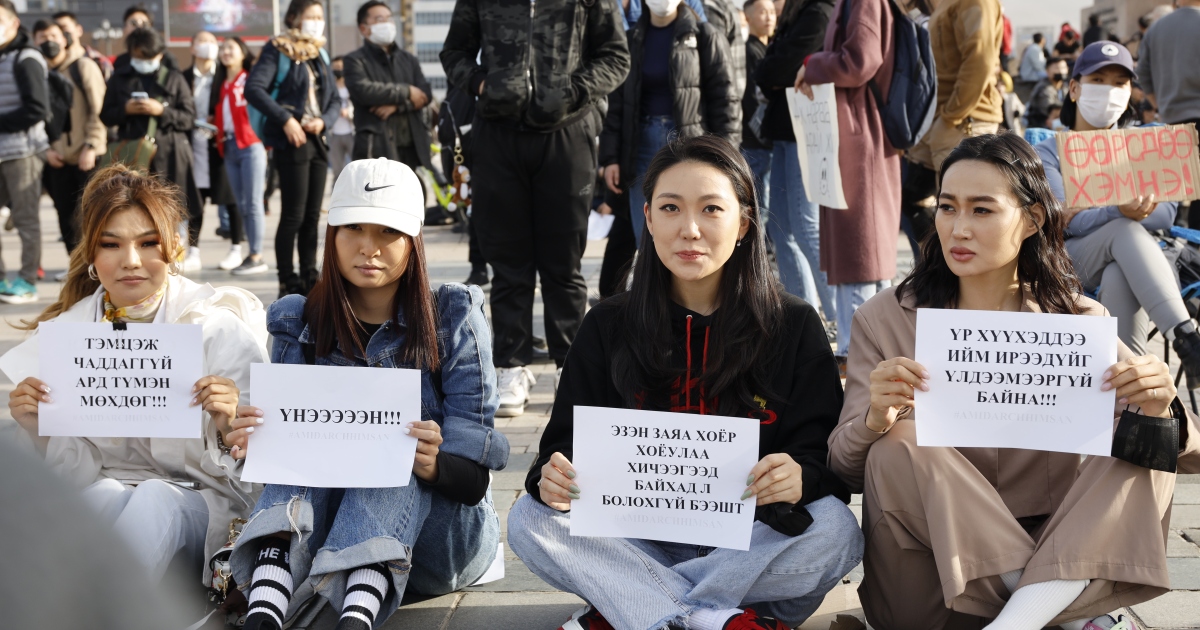On Tuesday, May 3 at 19: 30 GMT:
In Mongolia a protest that began in the city centre of Ulaanbaatar has now mostly moved online, and has become known as the Ажлаа хий (Do your job) protests.
In early April, young Mongolians gathered in Sukhbaatar Square for two days of peaceful demonstrations. They said they had no political affiliation but gathered to voice their concerns about the state of the economy, dissatisfaction with taxation, a lack of job opportunities, poor allocation of resources, and to call for an independent judiciary that can provide checks and balances for parliamentarians’ financial reports. They delivered a list of fifteen demands to the government, including measures to prevent inflation and support industrialisation.
But the demonstration was not completely peaceful. According to some protesters, after the gathering dispersed about 20 individuals were arrested by the police and beaten, with images going viral on Mongolian social media.
In response, Prime Minister Oyun-Erdene Luvsannamsrai convened an extraordinary session of parliament to discuss the protesters’ grievances.
Mongolia has been devastated by the global pandemic. In 2020 it closed its borders, shut down businesses, and banned international travel. The economy then suffered its worst decline since the 1990s and almost 260,000 more people fell into poverty. The Russian invasion of Ukraine has fuelled inflation, food shortages, and high fuel prices as Mongolia remains highly dependent on Russia.
In this episode we’ll look at the “do your job” movement, the economic problems facing young Mongolians, and how the Russian invasion of Ukraine has affected the country.
In this episode of The Stream, we are joined by:
Zhar Zardykhan
Greater Central Asia Editor, Global Voices
Anand Tumurtogoo, @AnandDairtan
Mongolian journalist
Khulan Jugder, @KhulanJ
Creator, The Media Show Mongolia podcast and newsletter
Published On 1 May 2022

